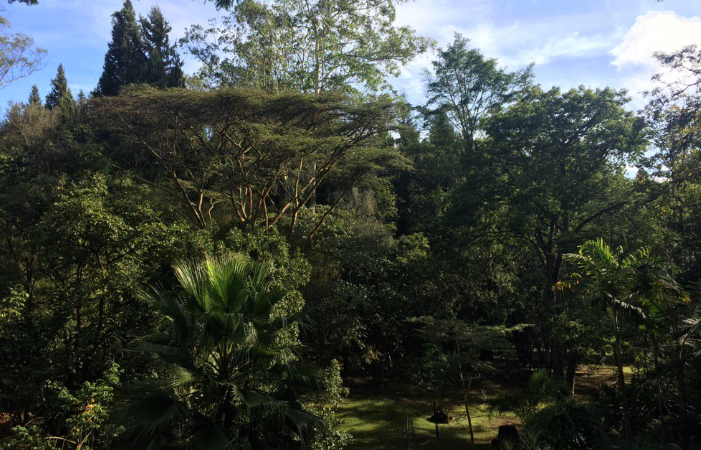Honouring Africa Environment Day and Wangari Maathai Day

Africa’s continent is experiencing considerable economic, social, and environmental challenges.
According to the World Meteorological Organisation’s State of the Climate in Africa 2023 report, the continent is bearing an increasingly heavy burden from climate change and faces disproportionately high costs for essential climate adaptation.
On average, the report states, African countries are losing two to five per cent of Gross Domestic Product (GDP) and many are diverting up to nine per cent of their budgets responding to climate extremes.
Tackling these weather extremes not only means an additional burden on poverty alleviation efforts but also significantly hampers growth. In Africa, climate change threatens to derail the significant development gains that have been made over the last decades. Put in context, Africa experienced extreme events including floods and drought among others.
It is against this backdrop, that the Organisation of African Unity, in 2002 as a way of raising awareness of the pressing environmental challenges facing the continent, launched the Africa Environment Day.
In 2012, the African Union (AU) would begin commemorating Africa Environment Day and Wangari Maathai Day together.
The days are celebrated together to honour Wangari Maathai, for her dedication to promoting environmental conservation and sustainable development in Africa. The days also recognise the role that women play in addressing climate change.
Extreme climate events in Africa In Libya at least 4,700 deaths were attributed to flooding following the Mediterranean cyclone ‘Storm Daniel’ in September…(2023)…, Parts of Kenya, Somalia, and Ethiopia experienced widespread and severe flooding, with more than 350 deaths and 2.4 million displaced people during the April-June rain season.
In Mozambique and Malawi, record-breaking tropical cyclone Freddy caused extensive flooding with Malawi hard hit with at least 679 deaths reported while a further 165 deaths were reported in Mozambique.
In South Sudan, the White Nile reached a record-high level in February. Basic needs such as food, clean water, and healthcare were difficult to access leading to near total collapse of local livelihoods. In September and October of the same year, approximately 300,000 people were affected by flooding across 10 countries, with Niger, Benin, Ghana and Nigeria most heavily impacted.
There was also a severe drought in parts of Morocco, Algeria, Tunisia, Nigeria, Cameroon, Ethiopia, Madagascar, Angola, Zambia, Zimbabwe, and the Democratic Republic of Congo in 2023. Early warning mechanisms Zambia faced its worst drought in the last 40 years, affecting eight out of 10 provinces and approximately six million people.
To counter these extreme weather events bedevilling the continent, African experts launched an ambitious Early Warnings For All Action Plan for Africa in September 2023. Its primary objective is to make sure that timely and accurate information about natural hazards and impending disasters reaches all segments of Africa particularly the most vulnerable. Several African countries have been identified for priority action in the global call that every person must be protected by early warning systems by 2027, the call of the United Nations Secretary-General António Guterres.
Fresh protests to save Uhuru Park And in context, Africa Environment Day and Wangari Maathai Day have been celebrated to showcase good practices in environmental management across the continent and prop the legacy of the Kenyan environmentalist and human rights campaigner.
In a classical picking from where the iconic environmentalist left off, plans by Nairobi Governor Johnson Sakaja’s move in early December 2024 to lease out Uhuru Park and Central Park, the two biggest green recreational spaces in the city,to private entities angered environmentalists lobby: The Green Belt Movement, a brainchild of the late Professor Wangari Maathai.
The organisation vowed to contest the plans. “Not again Sakaja Johnson. Uhuru Park and Central Park are public property. We will not watch as you privatise the only remaining green spaces in Nairobi,” the organisation told reporters in Nairobi.
Uninterrupted legacy Evidently, it is not only about the organisation that she once formed that continues to propel her legacy.
Her daughter and managing director for Africa and Global Partnerships at World Resources Institute leading the Africa strategy Wanjira Maathai, has been part of her legacy.
“We set up the Wangari Maathai Foundation, focusing on youth leadership. It continues to carry the legacy work. When my mother passed away, people were like, ‘How is it going to be to live in the shadow of this giant’, and I remember thinking in my heart and saying, ‘I’m not living in her shadow, I’m basking in her light’, Wanjira told Forbes Magazine in an earlier interview.
Celebrating Wangari Maathai Day and Africa Environment Day clearly defines the global collective role in conserving the environment for prosperity and future generations.















